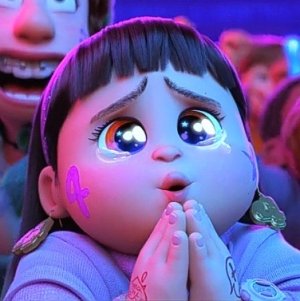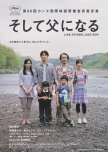When it comes to storytelling and themes, Hirokazu Koreeda is my favorite; the little details and the feels. Arguably, Koreeda is also one of the most consistent directors out there. Like Father, Like Son is no exception as it bears Koreeda trademarks: familial themes, little details, young cast with incredible acting, framing and music, among others.
Like Father, Like Son is bittersweet tale that is jarred with the power and emotional bond of family. It takes into question: what makes a family? Is it blood or is it the bond? Is blood truly thicker than water? Swapped children is nothing new, it's a trope. But what Koreeda does is look into this issue in detail, explore it, strip its characters bare and allows the viewer to experience (and question) the responsibilities, the decisions and the identities made/done in the film.
It is a dramatic film but not one that drowns you in useless melodrama, not one that forces you to cry and not one that feeds you with cheesy lines as family. But instead, there is rawness, there is delicate emotions portrayed and more importantly, there is realness.
Again, Koreeda channels extraordinary young talents with the two boys -- Keita and Ryusei. Not only does the contrast between the two complement their differences but it also intensifies the differences of the two families. How will a carefree boy adapt to an independent, almost traditional life? How will an independent boy adapt to a non-traditional, carefree life? How will a work-oriented father bond with his energetic, non-traditional son? How will a fun-oriented father bond with his traditional, almost serious son?
These challenges show that the people who struggle in these circumstances are not adults alone, but also the children. Keita (his real life name) portrays Keita's cuteness with invisible strength and innocence. Shogen Hwang portrayed Ryusei's energy with utmost maturity and curiosity.
Masaharu Fukuyama portrays Ryota with a distant facade that eventually tears down while Jun Kunimura balances it out with her calm and honest personality. On the other side, Lily Franky portrayed the film's comic relief that wields undeniable wisdom of fatherhood to match Ryota's and is further complemented by Yoko Maki's gentleness and cheerfulness. Each and everyone of these actors portrayed their characters with unmatched performance.
It won Jury Prize in Cannes for a reason. And it has caught the eye of Spielberg for a reason.
Amazing cinematography with attention to details (e.g. Keita's hand made rose) that plays itself as something symbolic or important in the film. Not to mention the music pacing with the frames, such beautiful piano to listen to. And finally, the contrast of the close up from the adults' POV to the children and the long shots of the children's POV to the adults. These decisions, as a whole, make Koreeda truly a talented film maker.
Was this review helpful to you?


























